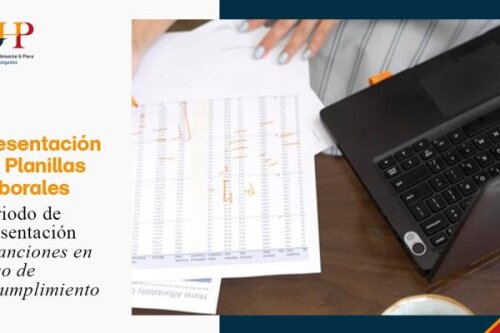Best Natural Resources Lawyers in Paraguay
Share your needs with us, get contacted by law firms.
Free. Takes 2 min.
Or refine your search by selecting a city:
List of the best lawyers in Paraguay
About Natural Resources Law in Paraguay
Paraguay is richly endowed with natural resources, including water, forests, and mineral deposits. The country is home to a significant part of the world’s second-largest fresh water reserve, the Guarani Aquifer, and boasts vast expanses of forested land, especially in regions like the Chaco. Natural resources law in Paraguay encompasses the regulations and principles governing the use, management, and conservation of these resources. Given the country's economic reliance on agriculture and hydroelectric power, efficient and sustainable management of these resources is vital. The legal framework aims to balance economic development with environmental protection and is continuously evolving to meet modern challenges.
Why You May Need a Lawyer
There are several situations where you might require legal assistance related to natural resources in Paraguay. For instance, if you are a business looking to invest in agriculture, forestry, or mining, navigating the local legislation can be complex and requires expert legal advice to ensure compliance. Individuals or communities involved in land disputes, faced with environmental degradation, or seeking to understand the legal processes involved in resource extraction may also need legal guidance. Moreover, as Paraguay is a participant in international environmental agreements, understanding how these involve local compliance might necessitate specialized legal interpretation.
Local Laws Overview
Paraguay's legal framework for natural resources is composed of various laws and regulations aimed at promoting sustainable development. Key legislation includes the National Constitution, which recognizes the importance of environmental protection, and the Water Code, which regulates the use and conservation of water resources. The Forest Law governs deforestation and reforestation efforts, ensuring that these activities align with ecological preservation goals. Additional important laws pertain to agricultural practices, mineral resources extraction, and biodiversity conservation. The integration of environmental impact assessments and permits is crucial in these legal processes, requiring thorough understanding and adherence from stakeholders.
Frequently Asked Questions
What are the main natural resources in Paraguay?
Paraguay's main natural resources include water from the Guarani Aquifer, hydroelectric power, arable land, and extensive forests. Minerals such as clay, gypsum, limestone, and marble are also significant.
What is the role of indigenous communities in natural resource management?
Indigenous communities play a vital role, as the law acknowledges their traditional knowledge and rights. Specific regulations protect their involvement and perspectives in the sustainable management of natural resources.
How does Paraguay address environmental impact from resource extraction?
Paraguay requires environmental impact assessments before initiating resource extraction projects. These evaluations ensure that potential environmental consequences are mitigated and managed according to legal standards.
What is the legal process for acquiring land for agricultural use?
The acquisition of land for agriculture typically involves a review of land titles, compliance with zoning regulations, and obtaining necessary permits. Legal counsel can help navigate these requirements.
Are there restrictions on deforestation in Paraguay?
Yes, deforestation is regulated by laws that aim to reduce illegal clearing and promote reforestation. Permits are required for legal logging activities.
How does Paraguay manage water resources?
Water resources are managed according to the Water Code, which includes allocations for agricultural, industrial, and domestic use, emphasizing sustainable management and use of water.
What is the framework for mining activities in Paraguay?
Mining activities require obtaining concessions and adhering to regulations that ensure environmental protection and sustainable exploitation. The Mining Code provides the relevant legal framework.
How are disputes over natural resources typically resolved?
Disputes can be resolved through negotiation, mediation, or legal proceedings. Understanding and utilizing the appropriate legal channels is crucial for resolution.
What is the significance of international environmental agreements for Paraguay?
International environmental agreements play a critical role in shaping national policies and practices around natural resources. Compliance with these agreements requires both national legal alignment and local enforcement.
What is required for sustainable forestry practices?
Sustainable forestry practices must align with legal requirements for environmental impact assessments, adherence to reforestation mandates, and obtaining proper permits for logging operations.
Additional Resources
For those seeking further assistance, consider reaching out to the following organizations:
- Ministry of Environment and Sustainable Development (MADES)
- National Forestry Institute (INFONA)
- Paraguayan Industrial Indemnity (SIP)
- World Wildlife Fund (WWF) Paraguay
- Local legal firms specializing in environmental and resource management law
Next Steps
If you require legal assistance with natural resources in Paraguay, the first step is to consult with a legal expert specialized in this field. Prepare a list of your concerns and any relevant documentation. This preparation will help your lawyer provide a more thorough analysis and guidance. Seeking advice from local or international organizations dedicated to resource management can also offer additional perspectives and support in navigating legal challenges.
Lawzana helps you find the best lawyers and law firms in Paraguay through a curated and pre-screened list of qualified legal professionals. Our platform offers rankings and detailed profiles of attorneys and law firms, allowing you to compare based on practice areas, including Natural Resources, experience, and client feedback.
Each profile includes a description of the firm's areas of practice, client reviews, team members and partners, year of establishment, spoken languages, office locations, contact information, social media presence, and any published articles or resources. Most firms on our platform speak English and are experienced in both local and international legal matters.
Get a quote from top-rated law firms in Paraguay — quickly, securely, and without unnecessary hassle.
Disclaimer:
The information provided on this page is for general informational purposes only and does not constitute legal advice. While we strive to ensure the accuracy and relevance of the content, legal information may change over time, and interpretations of the law can vary. You should always consult with a qualified legal professional for advice specific to your situation.
We disclaim all liability for actions taken or not taken based on the content of this page. If you believe any information is incorrect or outdated, please contact us, and we will review and update it where appropriate.
Browse natural resources law firms by city in Paraguay
Refine your search by selecting a city.















